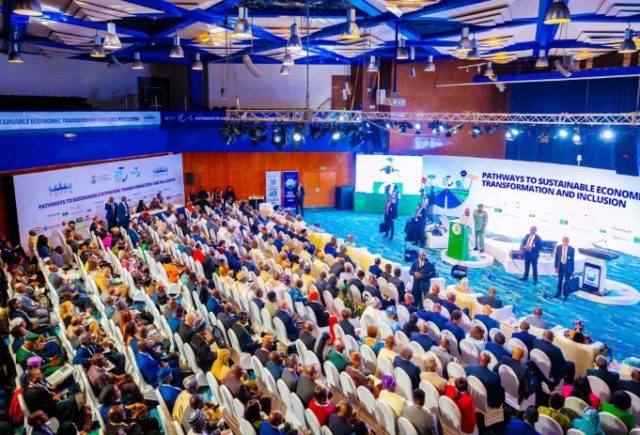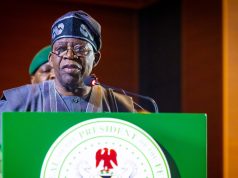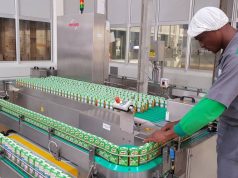The Nigerian Economic Summit Group (NESG), in collaboration with the Federal Ministry of Budget and Economic Planning, has unveiled preparations for the 31st Nigerian Economic Summit (NES#31), scheduled to take place from 6 to 8 October in Abuja.
At a press conference in Lagos on Tuesday, NESG chairman Niyi Yusuf said this year’s theme, “The Reform Imperative: Building a Prosperous and Inclusive Nigeria by 2030,” reflects the urgency of the country’s current situation.
“It is a reflection of where we are as a nation, and a call to action on what must be done if Nigeria is to truly prosper,” he said.
He explained that over the past three decades, the summit had evolved through five phases of Nigeria’s economy, from the pre-reform crises of the 1980s and 1990s, to the reform drive of the 2000s, the traction of Vision 20:2020, and the recent volatility of recession and the pandemic.
At each point, whether in pensions, agriculture, or energy, the summit has served as the country’s foremost dialogue platform for shaping priorities and building consensus between government and the private sector.
Mr Yusuf said Nigeria now needs a second wave of reforms to build on the difficult policy choices already made.
“The removal of fuel subsidies and the harmonisation of foreign exchange were courageous steps that brought short-term pain but created long-term opportunities. But stability is not the destination, it is only the starting point. The Reform Imperative is not a choice, it is a necessity,” he said.
Representing the Minister of Budget and Economic Planning, Atiku Bagudu, Felix Okonkwo, director of macroeconomic analysis at the ministry, said NES#31 aligns with the government’s reform agenda.
He said recent policies had begun to improve Nigeria’s fiscal position, debt sustainability, and investor confidence, describing these as “signals that Nigeria has chosen the right path.”
Mr Okonkwo stressed that reforms must be sustained as a process and not treated as a one-off event. He also emphasised the importance of programmes in agriculture, education, health and social protection to ensure vulnerable groups are not excluded.
He highlighted the Renewed Hope Ward Development Programme, launched by President Bola Ahmed Tinubu, as a “significant paradigm shift” in Nigeria’s approach to development and poverty reduction.
The initiative, he said, is designed to directly uplift more than 10 million economically active citizens and ensure that Nigerians at the grassroots feel the impact of reforms. Covering all 8,809 wards in the 774 local government areas, the programme seeks to guarantee inclusivity and shared prosperity.
NES#31 will address five sub-themes: driving industrialisation-led growth, building infrastructure for competitiveness, advancing inclusion for shared growth, strengthening institutions for sustainable impact, and unlocking investment amid global trade shifts.
According to Mr Okonkwo, these priorities mirror the government’s medium- to long-term goals of sustainable development, poverty reduction, and inclusive prosperity.
NESG chief executive Tayo Aduloju said the summits had consistently shaped policy at critical moments.
He pointed to past contributions such as reforms in pensions and agriculture, as well as frameworks during recessions.
READ ALSO: Court freezes Jaiz Bank accounts linked to ex-NNPCL boss Mele Kyari over alleged fraud
According to him, NES#31 is a defining moment to consolidate reforms, address investment and productivity constraints, and set the country on the path to Nigeria Agenda 2050.
“As we enter the Agenda 2050 era, NES#31 must help us sustain this momentum and translate resilience into renewal,” he said.
The NESG called on the government, the private sector, development partners and civil society to actively engage in the summit and contribute to building a resilient, inclusive and globally competitive Nigeria by 2030.
The Nigerian Economic Summit, first held in 1993, is Nigeria’s main platform for dialogue between government and the private sector on economic policy.









